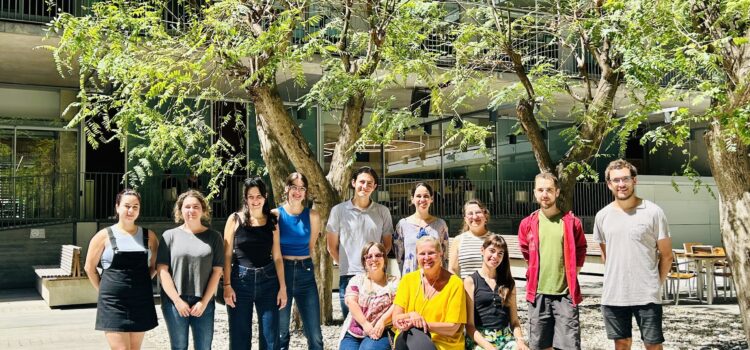On June 17, 18 and 26, the University of Pompeu Fabra in Barcelona hosted a training session for early-career science journalists. This initial session served as a pilot run to test and enhance materials for the FRONTIERS Training Programme, which will be offered to all FRONTIERS’ Fellows.
Training is an important part of the FRONTIERS project and there are training sessions planned for each cohort of FRONTIERS Fellows. Each training round includes a face-to-face session, to be held in Barcelona or Lisbon, and an online session. Both sessions will be excellent opportunities for the professional development of journalists in residency and for creating a network of motivated science journalists, who can share their experiences and mutually support each other during the residency period and beyond.
The pilot training used a case-based learning approach, to discuss topics such as “Gender Issues in Science Journalism” and “Preprints and Scientific Evidence”, involving participants in the analysis, discussion, and resolution of real-life problems. Ten early-career science journalists attended the training, including a follow-up online session, and evaluated their whole experience, leaving invaluable comments to the FRONTIERS team.
“The course offered two particularly valuable aspects,” says Marc Masip, a journalist on the verification platform Verifica’T and collaborator in the newspaper La Vanguardia. “Firstly, the various Artificial Intelligence tools we discovered, discussed, and worked on during the sessions are extremely useful for my work. Secondly, the diverse community of participants from different backgrounds greatly enriched our discussions, adding depth and a variety of perspectives.”
“I’m going to apply some of the tools we’ve discussed” ensures Júlia Santacreu, Journalist at the UMH Sapiens magazine. “Additionally, I plan to incorporate some of the perspectives and reflections we explored, such as those on gender equality and ways to promote women in science actively.”
Results and lessons learned during this initial event will now be used to build the upcoming training session, scheduled for Autumn, in a comprehensive program directed to the mid-career and established science journalists selected in the first round of applications.
